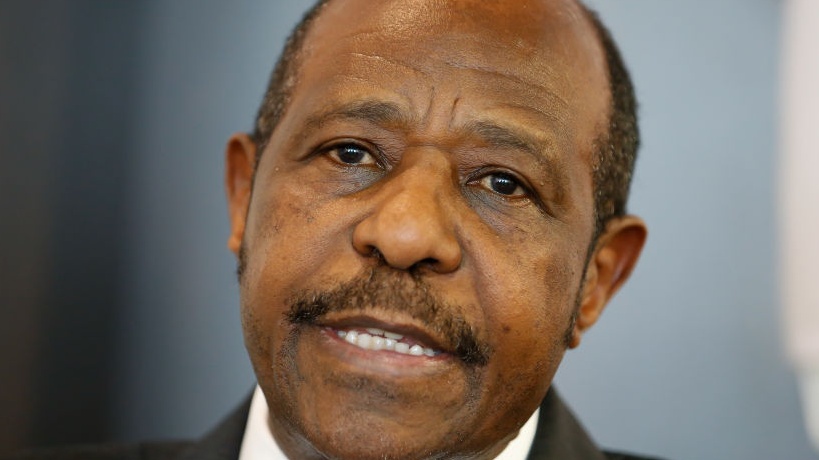Paul Rusesabagina, the praised figure depicted in the Oscar-nominated film Hotel Rwanda, has been sentenced to 25 years in prison after being found guilty on Monday of forming and funding a terrorist group in Rwanda, reports the New York Times.
Paul Rusesabagina is on trial with 20 suspects — 1 woman, 19 men — linked to the Rwanda Movement for Democratic Change, an opposition coalition in exile whose armed wing, the National Liberation Front, authorities say conducted attacks in south Rwanda pic.twitter.com/eBsI5GNJYc
— Abdi Latif Dahir (@Lattif) September 20, 2021
Rusesabagina gained notoriety during the 1994 genocide in Rwanda for his efforts to open a hotel to more than 1,200 Tutsi refugees. The deadly time led to the killings of about 800,000 people.
Over time, Rusesabagina became one of the biggest opposing forces against the country's longtime leader Paul Kagame. He later became a known critic of Kagame's autocratic regime, and the leader in response accused Rusesabagina of taking money for made-up stories of his heroic efforts to fund rebel groups looking to overturn his authority.
Rusesabagina was tried along with 20 defendants accused in the trial, the rest of whom were also convicted and sentenced to prison between three and 20 years. The charges included treason, murder, arson and belonging to a terrorist organization, CNN reports.
In Judge Beatrice Mukamurenzi's ruling, she said, “He founded a terrorist organization that attacked Rwanda. He financially contributed to terrorist activities. He approved monthly provisions of funds for these activities. He invented a code to hide these activities.”
Rusesabagina has been boycotting the trial since March and refused to show up for the verdict and his sentencing.
Scholars and civil rights advocates said Rusesabagina has been unjustly accused and convicted of these crimes laid against him by Kagame.
“This trial fits into a long history in Rwanda of silencing dissent,” Timothy P. Longman, a professor of political science and international affairs at Boston University and the author of two books on Rwanda, told the outlet. “The message has been clearly sent that no Rwandan is safe to speak out against President Kagame and the ruling Rwandan Patriotic Front.”
The government said Rusesabagina's work as a leader with the Rwanda Movement for Democratic Change, an alliance organization comprised of various exiled opposition groups whose armed faction, the National Liberation Front (FLN), is said to have been behind the 2018 attacks in Rwanda that left nine people dead.
“This lengthy trial has exposed the terrorist activities of the F.L.N. group led by Rusesabagina. The evidence against the accused was indisputable, and the people of Rwanda will feel safer now justice has been delivered. The trial has been a long and painful ordeal for the victims," Yolande Makolo, a spokeswoman for the Rwandan government, said.
The Belgian and U.S. governments, where Rusesabagina is a citizen and permanent resident respectively, both condemned the rulings and his trial.
“Mr. Rusesabagina did not receive a fair and due trial,” Belgium’s foreign minister, Sophie Wilmès, said of the proceedings. “The presumption of innocence was not respected either.”
“It’s been so painful to watch this trial,” Kanimba said. “We knew they would find him guilty. The script was written long before he entered the courtroom. This verdict means nothing.”
